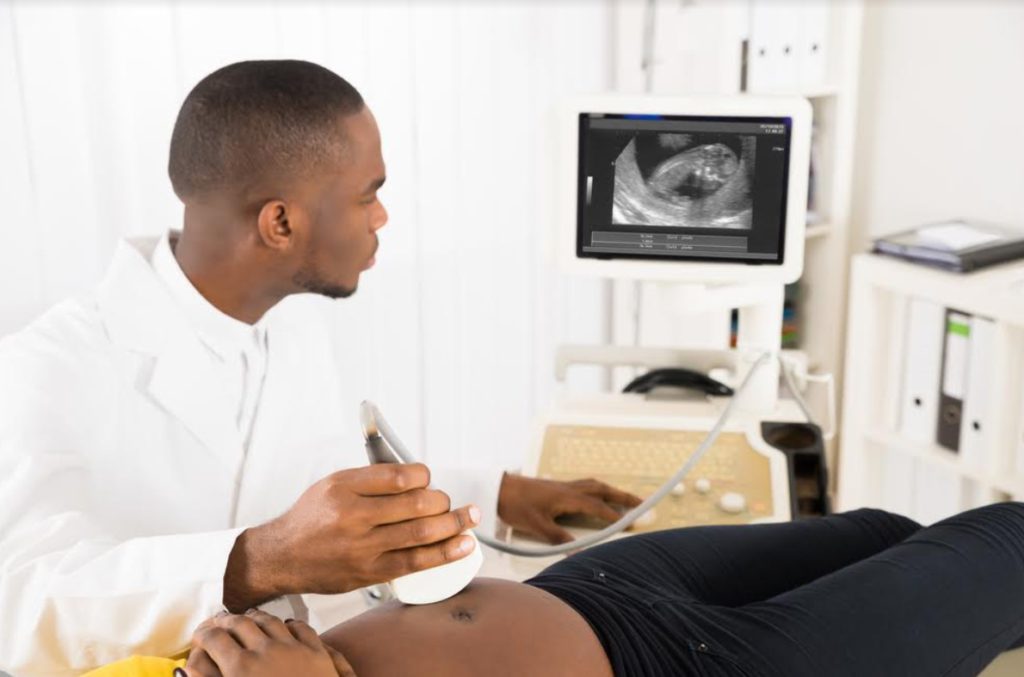Pregnancy is a life-changing event that often transforms many parts of a woman’s life, including her body, mind, and even lifestyle. Like with many other transformative experiences, you are likely concerned about the changes going on in your body. One area that many women commonly complain about is bloating. Bloating during pregnancy is to be expected and usually is not a cause for alarm.
This post addresses all your concerns regarding abdominal bloating during early pregnancy. Keep reading to find out more.

What is Abdominal Bloating?
The simplest way to describe bloating is to liken it to feeling like an inflated balloon is in your belly. Sometimes, this feeling may be accompanied by a gassy and gurgly feeling. Bloating may be one of the most uncomfortable early pregnancy symptoms that you experience and will most likely last all through your pregnancy.
What Causes Bloating During Pregnancy?
The main culprit behind abdominal bloating in the early stages of pregnancy is the pregnancy hormone, progesterone. Progesterone is the hormone responsible for maintaining a healthy pregnancy. However, the effects of this hormone also trigger bloating, burping, and passing gas. We’ll explain how.
Progesterone causes the smooth muscles in your body (including the muscles of the gastrointestinal tract) to relax. This can result in the slowing down of digestion, thereby causing you to feel bloated. On the bright side, slower digestion means that there is more time for the nutrients in your food to reach your bloodstream and consequently, reach your baby.
What Are The Symptoms of Abdominal Bloating?
Chances are that you may have noticed your abdomen feeling fuller than usual in early pregnancy. The following are accompanying signs that confirm that you’re experiencing abdominal bloating:
- Flatulence
- Burping
- Distended abdomen
- Production of more gas
- Constipation
All these are telltale signs that what you’re experiencing is abdominal bloating.
How To Handle Bloating During Pregnancy
The truth is you’ll probably experience some amount of bloating during pregnancy no matter what you do. Although medical treatment is usually not necessary for the treatment of boating, there are tips on how to manage constipation that will consequently minimize bloating. Here are a few helpful tips:
- Drink plenty water
One way to keep things moving through your digestive system is to stay hydrated by drinking plenty of water. This will help to avoid constipation, a leading cause of gas and bloating.
- Eat smaller portions
The more food you eat, the more gas you’ll be pumping out. The best way to prevent your digestive system from getting overloaded is to eat in smaller portions at healthy intervals. This will keep gas pains and constipation in check.
- Regular exercise or gentle physical activity
It is good to make regular exercise a priority for general well-being. During pregnancy, gentle exercise and physical activities go a long way in helping your digestive system move smoothly.
- Cut down on foods that produce gas
Some foods are known for producing excess gas. While it is not necessary to give these foods up entirely during pregnancy, it is usually a good idea to cut down on their consumption. These foods include beans, cabbage, onions, fried foods, sugary foods, broccoli, and cauliflower.
- Try a warm drink
A glass of warm water or tea can do magic in relieving all sorts of pregnancy abdominal woes. When you feel bloated, you can try a glass of chamomile tea or lemon tea for relief.
- Massage your abdomen
Gently massaging your abdomen can help ease bloating in the early stages of pregnancy.
When to see a doctor
Bloating during pregnancy is usually to be expected and is not cause for concern. However, in rare cases, it can be a pointer to underlying health conditions. If bloating feels constant and does not get better with home remedies, you should see a healthcare practitioner.

Also, see a doctor if bloating occurs with any of the following issues:
- Weight loss
- Pain in the upper part of the abdomen
- Fatigue and light-headedness
- Frequent bouts of nausea and diarrhea
Conclusion
Bloating is a common problem that many women experience during the early stages of pregnancy or even throughout pregnancy. Although it is an uncomfortable symptom, it is usually harmless and is not a cause for concern in many women. High levels of progesterone and other hormonal changes are responsible for bloating during pregnancy. Sometimes, it can also be due to diet and lifestyle habits.
Generally, dietary and lifestyle adjustments as well as home remedies are enough to relieve the symptoms of abdominal bloating during pregnancy. However, if your symptoms don’t improve, you should see a healthcare provider for additional suggestions in case bloating is a sign of an underlying health condition.

